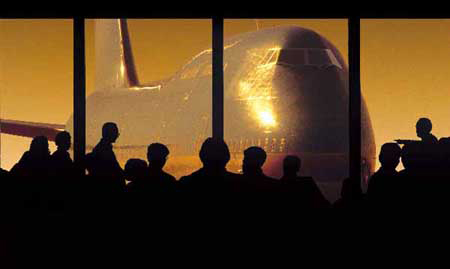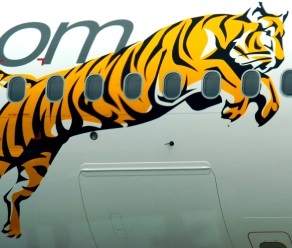Passengers want choice
28 October, 2013
3 min read


Airlines passengers want choice and plenty of it. That is the unmistakable conclusion of a new survey by PricewaterhouseCooper LLP.
In PwC’s US report Experience Radar 2013: Lessons Learned from the Airline Industry, the indelible lesson is “one approach doesn’t fit all,” says Jonathan Kletzel, PwC’s U.S. transportation and logistics leader. He says different consumer segments “from senior executives to budget-minded leisure travelers have different preferences and opinions on what constitutes great travel experience.”
Case-in-point, DIY, or do-it-yourself travel options. PwC’s report says time-constrained, pedal-to-the metal business travelers are 1.8 times as likely than leisure travelers to use mobile devices to do routine booking and such. That doesn’t mean when things go really awry, however, that they’re willing to settle for virtual resolution of the problem. Passengers crave flesh-and-blood human intervention. “In fact,” says the survey, “two out of three flyers prefer an agent to help resolve issues such as cancelled or missed flights.”
Just how well airline folks resolve those issues “is critical to travelers’ experiences and views of an airline,” concludes PwC. The less-than-satisfying revelation is that “49 percent of airline complaints and issues are said to go unaddressed.”
PwC suggests “empowering” airline agents with the right kind of tools to really solve the problem, because bad news spreads fast these days. “99 percent of travelers worldwide share memorable experiences,” says the report. “Bad stories are told and retold.” Mad passengers equipped with mobile devices have a multiplier effect when it comes to how folks view flying, and that isn’t always good news for the airlines.
No newsflash here, but PwC says, “Most leisure travelers want more space.” Leisure flyers are willing to pay a seven percent premium for more leg room and recline; six percent for more hip room. More carriers are willing to do just that these days, but certainly not all.
As for being willing to pay up for moving up front, into first or business class, the survey finds “nearly one in five business travelers will pay for upgrades out of pocket.”
There’s a not surprising 30 percent gap ‘twixt in-flight Wi-Fi usage separating leisure and business travelers according to PwC. A full 70 percent of business flyers demand wireless connectivity on long flights; leisure travelers spend about 40 percent of their time aloft using it.
Then there’s bundling. Airlines are making a significant share of their profits by unbundling in-flight amenities: food, boarding order, seat pitch and such. PwC discovered lots of passengers, however, “prefer bundles that suit their travel needs and don’t require them to pay multiple fees.” The composition of those bundles differs by segment. Cost-sensitive travelers might like Wi-Fi, food, beverage and bags. Business flyers might opt for things like lounge access and luggage pick-up and delivery. The bottom line: whatever the composition of those fees, “building goodwill” means they need to be transparent.
Next Article
Virgin gets nod for Tiger deal

Get the latest news and updates straight to your inbox
No spam, no hassle, no fuss, just airline news direct to you.
By joining our newsletter, you agree to our Privacy Policy
Find us on social media
Comments
No comments yet, be the first to write one.
